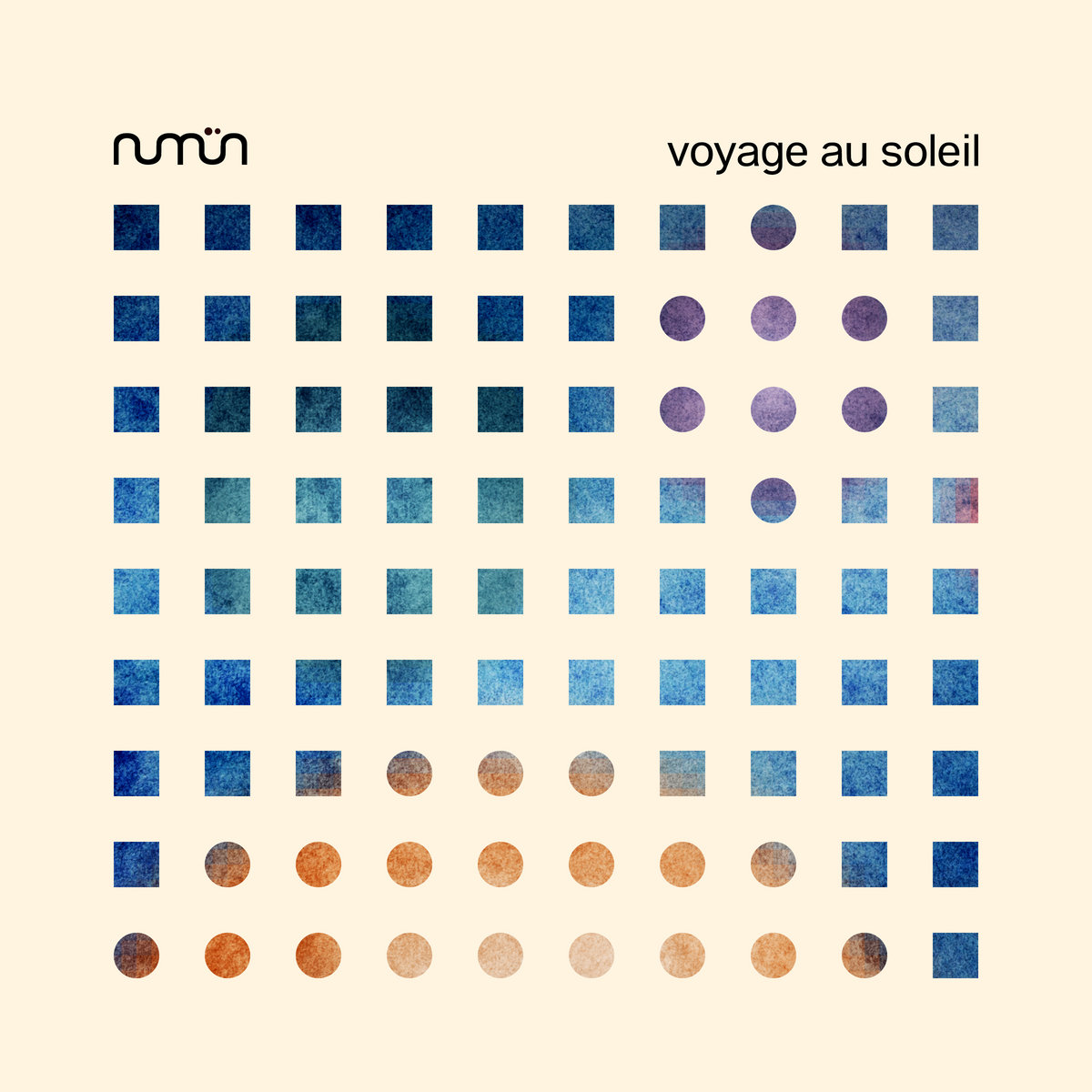National Music Reviews
numün
voyage au soleil
Musique Impossible
Street: 09.04
numün = Gamelan Dharma Swara + Brian Eno
A certain profound experience occurs when the senses encounter a stimulus that unexpectedly aligns with something within. These moments produce the kind of harmony that is both alarming and splendid. The natural world provides many classic examples of this: Crashing waves suggest the rhythmic pattern of inhales and exhales, and a warm breeze can seem to induce timely sleep. When this happens, we often find that any reasonable twinge of impossibility is quickly overwhelmed by an even stronger sense of wonder.
voyage au soleil, the first album from ambient trio numün, possesses this mystical quality. On all six tracks, the group manages to wordlessly express tones and sensations that feel meditative, familiar and intensely organic.
Bob Holmes, one third of numün, has explored genres including ambient country, punk bluegrass and americana during his multi-decade career. On voyage au soleil, Holmes is joined by Joel Mellin and Chris Romero, both of whom are closely affiliated with Gamelan Dharma Swara, a NYC-based Balinese music and dance group centered around the traditions of Indonesia. The collective resumé of the three members reads like a deeply interwoven exploration of both Eastern and Western influences.
According to the trio, the original sessions that became voyage au soliel, or “journey to the sun,” came out of “a project to commemorate the 50th anniversary of man’s first landing on the moon.” numün contributed a track to the collaborative collection titled The Moon and Back – One Small step for Global Pop, which led to more studio time shared between the three members. “Tranquility Base,” the group’s contribution to that project, appears as the third track on voyage au soleil.
Much of the album heavily features traditional Balinese instrumentation. Gamelan, an ancient genre based in brass percussion instruments, is considered an indigenous art form, predating the Hindu-Buddhist culture that dominates the earliest records of present-day Indonesia. In Javanese mythology, Gamelan music stems from gongs that were originally invented to summon the gods. Both Mellin and Romero have studied Gamlan extensively, and, when combined with Holmes’ history of “off-kilter Americana,” numün creates a soundscape that demonstrates human connectivity across space and time.
There is a great deal of tonal and emotional variation on voyage au soleil, though it all fits together cohesively, bound by a sequence of transcendental moments. “Expanse” is spacious and bare, like a sandy plain devoid of life but enlivened by the whooshing excitement of a passing wind. Deft hand percussion provides non-linear syncopation, while chimes and hums subtly rise and fall in the mix. The complete composition is pensive—unsure where it’s headed, but intentionally so. It wanders for the sake of wandering, providing an introspective context for the listener to explore.
“Traceport,” the opening track, has more of a lofty and trance-like quality. When a wind instrument takes the lead midway through, the track offers a long period of repetition. The overall effect is similar to those periods of life when each day resembles both yesterday and tomorrow. Routine can be enchanting.
With voyage au soleil, numün introduce themselves as a force that is capable of channeling the ineffable and intrinsic features of life into musical composition. By fusing long careers that span a great breadth of genres, the group finds common ground in the instrumental description of feeling. East or West, Gamelan or bluegrass, we all share the experience of feeling our emotions shift as we listen to a passing storm or a rushing river. This is the thesis of voyage au soleil. –Austin Beck-Doss

